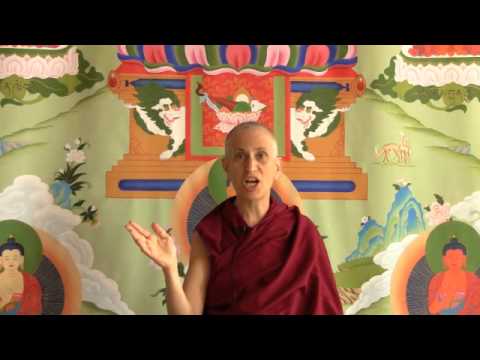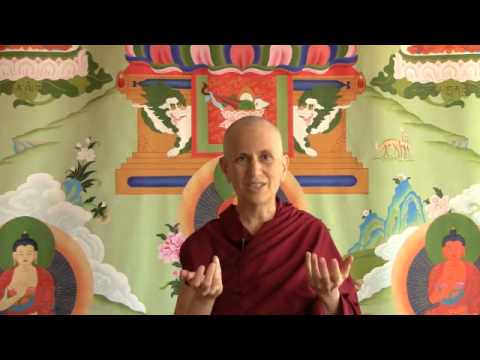Higher training in ethics
Stages of the Path #116: The Fourth Noble Truth
Part of a series of Bodhisattva’s Breakfast Corner talks on the Stages of the Path (or Lamrim) as described in the Guru Puja text by Panchen Lama I Lobsang Chokyi Gyaltsen.
- Ethics as the foundation of the other practices
- Taking precepts
- Beginning to subdue the grossest afflictions
I’ve been talking about the three higher trainings: ethical conduct, concentration, and wisdom. Like I mentioned yesterday, these build on each other.
Ethical discipline (ethical conduct) is the foundation because that regulates principally our actions of body and speech. To deal with our mind, first we have to regulate physical and verbal actions because the mind is much more subtle and the mind is the root of what motivates us to speak and act. So since the mind is more subtle and it’s the motivating thing, and it gets expressed physically and verbally, by controlling the grosser actions (physical and verbal) then we approach being able to work with the mind.
The pratimoksha precepts that we take, which are the principal ones here included in the higher training of ethical conduct, regulate our physical and verbal actions. When you go to concentration, then you’re starting to regulate the mind. You’ve got to do the physical and verbal actions before you can work with the mind. Then when you’re generating wisdom, again you’re working with the mind but an even deeper view.
With ethical conduct we are subduing the very, very gross afflictions, the ones that get expressed physically and verbally. That gives us the foundation to develop concentration in our meditation where we are temporarily suppressing the afflictions. That gives us the foundation to develop wisdom in which we cut off the continuum of the afflictions all together.
The afflictions that manifest physically and verbally are the grossest ones, those get worked at with the pratimoksha vows. Then when we develop concentration by entering the jhanic states, or these deep states of concentration, in order to enter them you have to temporarily be able to subdue, or to suppress, the very gross afflictions.
Here “suppress” doesn’t mean like when we use “suppression” psychologically, which is unhealthy. Here it means you’ve really developed your ability to meditate well and you can focus the mind and concentrate. To do that these gross afflictions have to be suppressed, but they aren’t eradicated. That’s why just developing deep concentration and samadhi alone is not sufficient for attaining liberation. We also need the higher training of wisdom because it’s only by generating the wisdom that sees what the ignorance grasping at true existence (the object of that ignorance) does not exist. It’s only by generating that wisdom that we’re able to cut the continuity of the afflictions all together.
Do you see how those three build one each other? And how it’s very important in our practice to really emphasize the ethical conduct at the beginning, because that’s easier to do. We’re only dealing with the physical and verbal manifestations of the afflictions there. Then, more difficult is concentration. Still more difficult is wisdom.
It’s incredibly important to start with the ethical conduct. I say this because many people in the West think that ethical conduct is just what got pushed on them in Sunday School and they don’t like it, and instead they want the real serious, deep teachings on concentration and wisdom. But if they try and practice those teachings without the proper foundation they’re not going to be successful in their practice. It’s like trying to build the roof when you haven’t laid the foundation and built the walls yet. This instruction that the Buddha is very practical and it enables us to do what is easier first, and then on the basis of that we get some confidence. Then it becomes easier to develop concentration and wisdom.
Venerable Thubten Chodron
Venerable Chodron emphasizes the practical application of Buddha’s teachings in our daily lives and is especially skilled at explaining them in ways easily understood and practiced by Westerners. She is well known for her warm, humorous, and lucid teachings. She was ordained as a Buddhist nun in 1977 by Kyabje Ling Rinpoche in Dharamsala, India, and in 1986 she received bhikshuni (full) ordination in Taiwan. Read her full bio.


